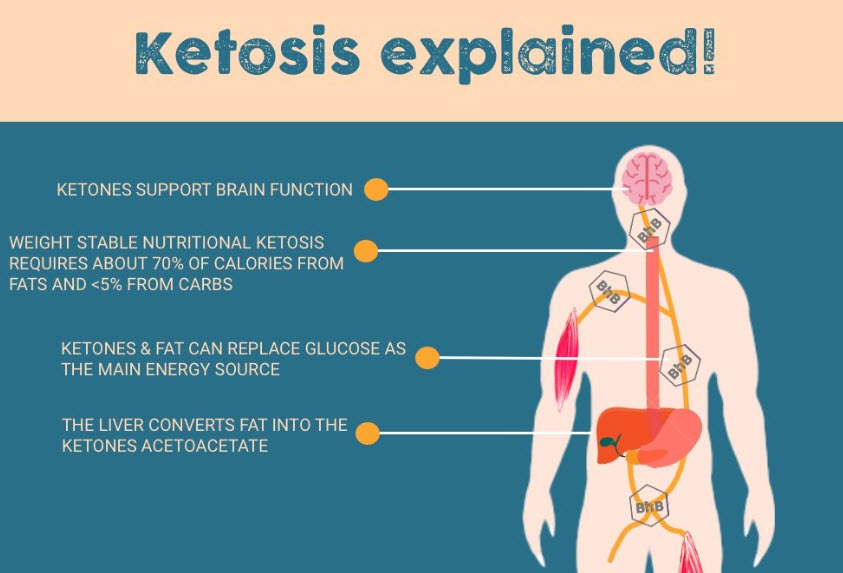
Intermittent fasting (IF) is a diet style that limits calorie intake to a specific time window every day. It has been shown to help some people lose weight and improve their health.
It can also help preserve muscle mass and boost strength. However, there are a few things to keep in mind when it comes to working out and intermittent fasting.
How Does Intermittent Fasting Impact Muscle Recovery?
Intermittent fasting is a popular pattern of eating that has many health benefits. Several studies have found that it can help people lose weight and maintain muscle mass.
But the jury is still out on whether intermittent fasting also helps build muscle. There are a lot of factors at play, and it all depends on how you approach your diet.
Muscle gain is a goal that requires specific strategies to be optimized. That’s why you need to get your protein and carbs dialed in.
To make sure you’re giving your muscles everything they need, aim to have a protein-rich meal with every meal. Shoot for 0.6-0.9 grams of protein per pound of body weight, and 1.8-3.2 g of carbs daily to support muscle growth.
It’s also a good idea to train before you break your fast, as it will maximize your growth hormone release and help you gain muscle mass. This is because human growth hormone (HGH) promotes bone, cartilage, and muscle growth.
Can Intermittent Fasting Help Me Optimize My Muscle Recovery After Exercise?
Intermittent fasting, or IF, can be a great way to optimize your muscle recovery after exercise. When you work out, your body needs energy to power through reps, sets and laps.
But it also needs food to repair and rebuild muscle protein stores, replenish glucose and glycogen in your muscles and liver, and restore energy levels. Without food, your body’s ability to recover and regenerate can be compromised, causing you to feel tired, irritable, and depleted.
In the end, you’ll want to eat a meal within an hour of your workout so your body can start refueling and healing. This will help you to feel better, get stronger and perform at your best.
There are a few different types of intermittent fasting that you can try. Some of them involve eating only a few small meals throughout the day, while others restrict you to a certain number of hours when you can eat.
What Can I Eat During My Intermittent Fasting Window?
During an intermittent fasting window, it is important to eat nutrient-rich foods that will help you feel full and keep your blood sugar stable. These include fruit, cruciferous vegetables, and whole grains.
These are high in fiber, which helps you feel full for a long time and is also linked to lowering your risk of heart disease and certain cancers. Additionally, they are loaded with vitamins and minerals that support your health.
However, it is best to avoid eating too much when you are on an IF diet. It is also important to drink a lot of water during your fasting window to ensure that you stay hydrated.
Coffee and tea are a great choice during your fasting window, especially black coffee or green tea. Both contain very little calories and are very healthy for you. But, they should be consumed in moderation and without added cream or sugar.
What Can I Avoid During My Intermittent Fasting Window?
Intermittent fasting, also known as time-restricted eating or IF, is a diet that limits foods and beverages during a specific window of time. This allows a person to create a calorie deficit and thereby burn fat, a common goal of most weight loss plans.
However, it is important to note that anything with calories will break a fast, including soda, juice, and coffee or tea. Water and black coffee (with no milk or creamer) are considered to be safe to drink during a fasting window, but it is best to avoid sweetened drinks.
To maintain a healthy body, it is essential to consume foods that are high in nutrients and fiber. These foods help keep blood sugar levels steady and may prevent nutrient deficiencies, Varady says.
Frequently Asked Questions
Is 16/8 Intermittent Fasting right for me?
Examining intermittent fasting and your particular lifestyle can be a critical deciding factor when making dietary changes. 16/8 intermittent fasting allows you to eat within a 8-hour window, and then fast the 16 remaining hours of each 24-hour cycle. Intermittent fasting is known to have many health benefits. However, it is important that you research it and decide if it is right for your needs.
Delving into the specifics of 16/8 intermittent fasting will better prepare you for making this decision. The aim is to reduce total calorie consumption, without feeling restricted or uncomfortable. You can do this by skipping certain meals or eating at particular times of the day, such as breakfast, lunch and dinner. You can create a plan that will allow you to eat the right amount of food and how often you eat it.
To determine whether 16/8 would work well for you, it is important to understand your body. When it comes to assessing one's dietary preferences, food choices and nutritional needs, there are many variables that can be considered. It is possible that intermittent fasting is not the right choice for you. Many diets range from low-carb to high-fat and other healthy eating plans, so don't get discouraged if one doesn't look right for you.
No two bodies are exactly alike - it is up to you how much energy and effort you put into considering all dieting options when searching for the best suited for your needs. Before you commit to 16/8 intermittent fasting, take the time to honestly assess yourself and determine if this is the right way for you.
What is the latest research on intermittent fasting for weight loss?
It is possible to discover amazing possibilities by exploring the benefits of intermittent fasting for weight loss. Research suggests that changing your eating habits throughout the day can help with weight management and overall health. Research also indicates that structured fasting can help boost metabolism, reduce food cravings, promote fat burning and reduce inflammation.
Intermittent fasting is an intriguing concept based on several physiological processes that are designed to improve health outcomes and lead to weight loss success. Recent studies have shown that intermittent fasting can improve insulin sensitivity, cell repair and hormone balance, as well a positive effect on bacterial populations.
These adjustments, taken together, offer promise to people who want a lifestyle shift or additional tools in their weight-loss arsenal. For those who want to manage their long-term goals effectively, increased energy levels and mental clarity are benefits.
The evidence supporting positive hormone balance through fasting protocols is equally impressive. This prevents you from feeling deprived or too satisfied by indulgences. This allows for maximum caloric intake, while also allowing you to maintain your exercise program goals.
The scientific research that supports intermittent fasting's impact on long-term wellness goals and the results of scientific research makes it simple to develop a plan of action that works.
What food should I consume to lose weight quickly and maintain intermittent fasting?
Effective diet requires strategic thinking. You must make sure that the food you eat and how much you eat are in line with your fitness goals if you plan to use intermittent fasting. It is important to avoid eating too many processed foods or excessively overeating.
Proteins are the key to successful intermittent fasting weight loss. Lean proteins such as chicken, salmon or ground turkey are rich in muscle-burning amino acid and plenty of filling fiber. Eatening protein over empty carbs can help you feel fuller for longer periods of time and increase your satisfaction. Next comes high-fiber vegetables like leafy leaves and cruciferous vegetable that will fill you up and also contain essential vitamins such as vitamins C andK, beta carotene (which fuels your cells), and magnesium. Complex carbs such as oats and rice can be added to meals to give you more energy for your workouts. It also regulates blood sugar so that you don't feel overwhelmed when you finish eating.
Finally, don't forget healthy fats, which should be eaten in moderation. Nutrient-rich seeds like sunflower seeds and chia seeds provide good amounts of MUFA & PUFA (Monounsaturated fatty acids & Polyunsaturated fatty acids), which are good for overall health and wellness, helping reduce cholesterol levels and keep your hair and skin looking healthy and full. Brocolli, which includes calcium, magnesium & iron with many other micronutrients, is one way to get all these macronutrients together in one big meal.
This allows you to easily make a keto diet plan, which will curb your hunger cravings and not compromise your nutritional needs.
Lemon water can break your fast
While fasting can be very beneficial, many people fear breaking it. So the question is, will lemon water break your fast?
The answer may surprise you: no, in moderate amounts, it won't. Citrus fruits are okay for consumption during fasting periods as they are packed with nutrients and vitamins that help regulate digestion and make up for some of the meals you miss.
The benefits of lemon juice include increased metabolism, hydration, improved fat burning capabilities, and higher nutrient absorb rates. Allowing purely natural citrus flavours to guide your journey with purpose might be what unlocks a unique fasting experience that's been inside you all along.
Some studies have even gone so far as to suggest that sugar-free lemon water is best consumed before breakfast during a fasting period because this helps to stimulate digestive juices for an efficient start to your day!
Remember, less is more! Sticking to 2 tablespoons a day of fresh lemon juice is safe. This will not compromise your fasting results.
Take heart, knowing that you can still enjoy delicious breakfast flavors without sacrificing vital nutrients could make a difference in your day.
How long should I fast for intermittent fasting to lose weight?
Intermittent fasting for weight loss requires that you examine your motivations and set realistic goals. It is possible to lose weight fast by fasting for longer periods, but not everyone will like it.
To ensure that you're successfully integrating intermittent fasting into your lifestyle, the first step is determining how often and how long the fasts should be to meet your goals. How many hours/days will you dedicate each week? It depends on what kind of routine you prefer - 16 hour daily time-restricted food or anywhere from one to seven day of water fasting.
The most important thing is to listen to your body. Begin by looking at your energy levels and hunger levels throughout the day. Different diets might not be suitable for everyone. If you find that a particular diet is not working, don't be afraid to try other options.
When done correctly, intermittent fasting gives people more feedback about their bodies, providing insights into potential dietary triggers of inflammation and disease prevention, plus improved focus on physical goals like weight management. It offers a practical framework to live a healthy life. By taking us out our comfort zones, it motivates us to achieve our health goals.
What weight loss can you expect to see in one week of intermittent fasting?
Is it possible to calculate how much weight you should try to lose each week by doing an intermittent fast? Knowing the answer requires thoughtful consideration.
The key is to be balanced. Overly aggressive goals can lead to burnout or injury. Consider lifestyle factors like adequate sleep, hydration, and nutrition when planning your weight loss goals. While counting calories can be helpful, it shouldn't be the main focus of your weight loss plan.
Second, you need to be realistic about what results you can expect. Losing more than 1-2 kg per week could cause undue strain to the body. Trying to lose less might result in minimal or no visible results. The body can also be measured to monitor progress, in addition to simply looking at the scales.
Finally, talk regularly with an experienced dietitian or health professional who can provide support and additional guidance throughout your journey. It is important to seek out an objective opinion in order to ensure that any goals you set are achievable and safe.
Statistics
- IF participants) IF resulted in weight loss, ranging from 0.8% to 13.0% of baseline body weight (Table 1). (ncbi.nlm.nih.gov)
- In 2018, 63.1% of Canadian adults were overweight or obese. (ncbi.nlm.nih.gov)
- Fat consumption was examined in 1 study, which compared dietary fat intake of 45% versus 25% at the expense of carbohydrate intake. (ncbi.nlm.nih.gov)
- IF trials found weight loss of 0.8% to 13.0% of baseline weight with no serious adverse events. (ncbi.nlm.nih.gov)
External Links
ncbi.nlm.nih.gov
- Intense energy restriction is a better way to lose weight in obese men: The MATADOR Study - PubMed
- INTERMITTENT FEASTING AND HUMAN METABOLIC HEALTH- PMC
pubmed.ncbi.nlm.nih.gov
- Intermittent fasting - Is it a useful tool in treating diabetes? PubMed: Review of the literature and guideline for primary care physicians.
- Daily fasting improves survival and health in male mice independent of diet composition and calories - PubMed
jamanetwork.com
nejm.org
How To
Getting Started With Intermittent Fasting - A Beginner's Guide
Intermittent Fasting is a popular way to lose weight and improve your health. It involves alternate eating and abstaining. There are several different methods of intermittent fasting, including the 16/8 method, where you fast for 16 hours and then eat during an 8-hour window, and the 5:2 method, where you normally eat for five days and then reduce your calorie intake to 500-600 calories on the other two nonconsecutive days.
These are the steps you need to take to start intermittent fasting.
-
Determine your goals: Before you start any new eating plan, it's important to consider why you want to try the intermittent fasting and what you hope to achieve. Intermittent fasting can be used to lose weight or improve your overall health.
-
Please choose a method. There is a wide variety of intermittent fasting methods. When choosing which method to try, consider your lifestyle, eating habits, and schedule.
-
Plan your meals. If you are using the 16/8 method to fast, plan when and how many meals you will eat during your 8-hour window. Fasting can be beneficial for your health if you include high-quality, nutrient-dense foods.
-
Drink plenty of water, and keep hydrated. Intermittent fasting is a great way to feel full and satisfied. Consider adding unsweetened or herbal tea to your water intake.
-
Consistency is key for success when intermittent fasting. Try to stick to your chosen method as closely as possible, and be patient - it can take time to see the results you want.
Intermittent fasting is a powerful tool to lose weight and improve overall health. However, it is not suitable for all. To determine if intermittent fasting is safe for you, consult your doctor. Intermittent fasting is possible with the right approach.
Resources:
 |
What are BENEFITS of Intermittent Fasting?Some research suggests that intermittent fasting may be more beneficial than other diets for reducing inflammation and improving conditions associated with |
 |
[Doctorly Unhinged - EP1] Ozempic Woes, DEBUNKING Intermittent Fasting, and the DANGERS of ManicuresSUBSCRIBE TO OUR PODCAST! https://doctorly.podlink.to/unhinged Is this trending medication that’s been touted to cause dramatic weight loss changing |
 |
The Good Life: Intermittent fasting: Ideal for weight loss?We decode the hype around one of the most popular eating methods for weight loss. Is intermittent fasting for everyone? #thegoodlife #intermittentfasting |
 |
Intermittent Fasting: A Two-Month Experiment. Does It Work? | Talking Point | Full EpisodeAfter drinking sugar-laden bubble tea three times a week for a month for an earlier Talking Point episode, host Steve Chia is ready to lose the weight he |
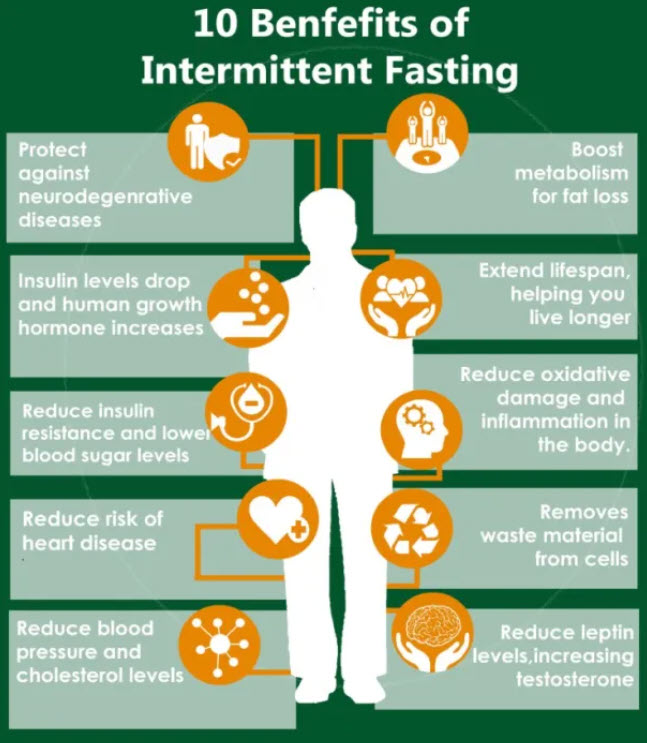 |
Intermittent Fasting For Weight LossWeight loss with Ketosis |
 |
Intermittent Fasting May Have Health Benefits Beyond Weight Loss | TODAYAccording to an article in the New England Journal of Medicine, new evidence suggests that intermittent fasting could provide many health benefits beyond |
 |
Don’t know whether to cut or bulkDon’t know whether to cut or bulk |
 |
What’s your favorite way to eat chicken?What’s your favorite way to eat chicken? |
 |
Intermittent Fasting TESTED - 30 Day Before & AfterGo to https://NordVPN.com/goalguys and use code GOALGUYS to get a 2-year plan plus 1 additional month with a huge discount. It’s risk-free with Nord’s 30-day |
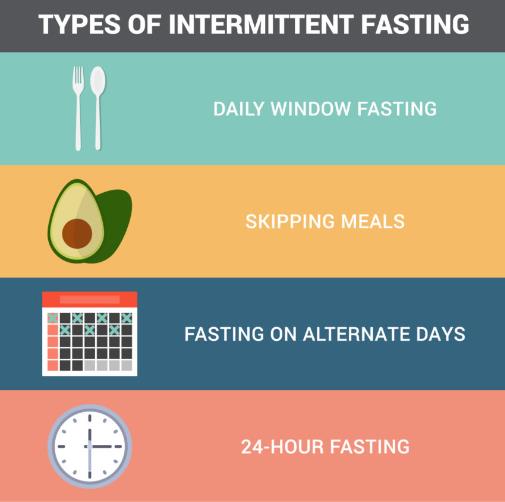 |
Intermittent Fasting For Pregnant WomenWhile intermittent fasting for pregnancy has its benefits, it can also be dangerous. Read on to learn more about the risks and benefits of.. |
 |
Intermittent Fasting and Low-Carb DietIf you want to lose weight, try combining intermittent fasting with a low-carb diet. Both methods help you lose fat and control health conditions... |
 |
Intermittent Fasting Guide for 2022 | Doctor Mike HansenIntermittent Fasting Guide for 2022 | Doctor Mike Hansen Did you know that it's been predicted that by 2030, more than half of the U.S population will be |
 |
How to do Intermittent Fasting: Complete GuideJoin my Email List: https://www.thomasdelauer.com Check out Thrive Market: http://ThriveMarket.com/Thomas Follow More of My […] |
 |
Intermittent Fasting Myths - Top 5 | Jason FungI cover the most important myths about intermittent fasting and why they are not true. Check out my website at https://www.doctorjasonfung.com and blog at |
 |
How Autophagy WorksAutophagy is a dynamic degradation system that promotes tumor survival. It also promotes the growth of established tumors and facilitates metastasis. .. |
 |
How Intermittent Fasting Affects Your Body and Brain | The Human BodyStars like Beyonce and Hugh Jackman have spoken out about following intermittent fasting plans to get in shape. How does intermittent fasting work? Here's what |
 |
Intermittent Fasting 8/16You may have heard of the intermittent fasting 8/16 or 12/12 time restriction. This type of fast requires you to go without eating or drinking for.. |
 |
Intermittent Fasting For WomenSide effectsWomen who are looking for a way to lose weight can try intermittent fasting. However, there are several side effects to this type of.. |
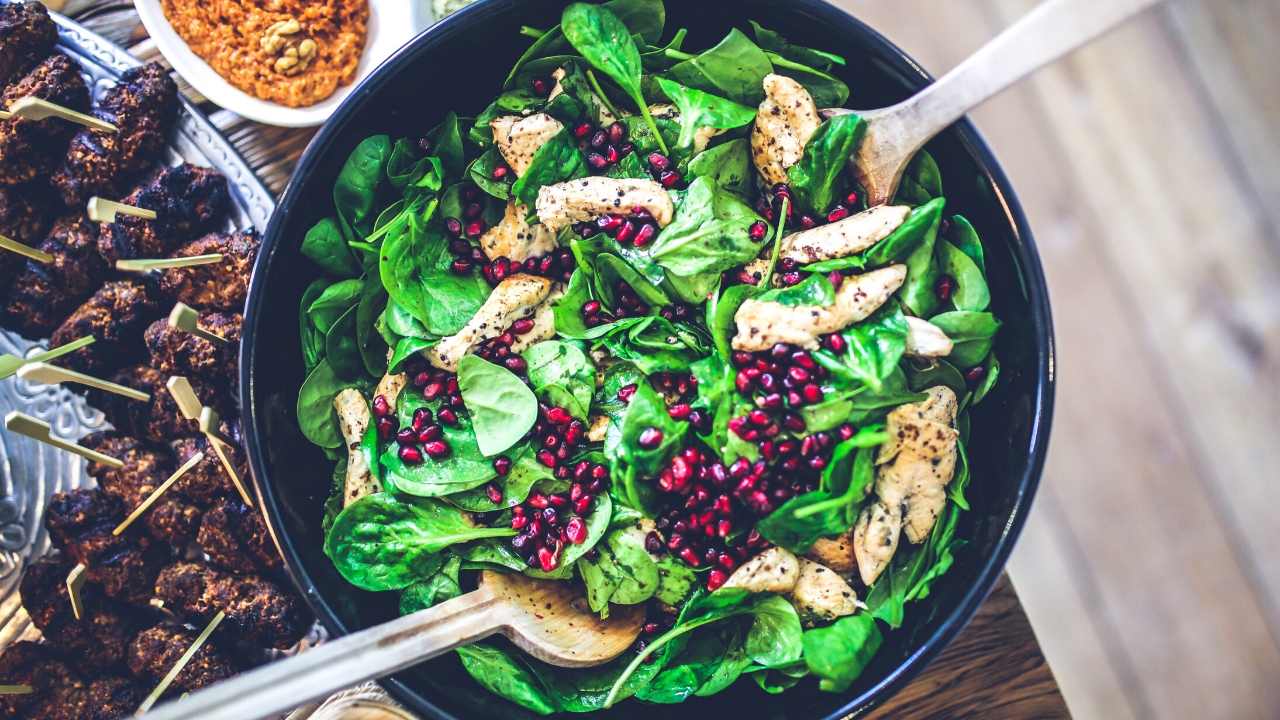 |
How Much Cholesterol in a DayHow much cholesterol in a day depends on a number of factors. While dietary cholesterol is not necessarily bad, excess intake can lead to serious.. |
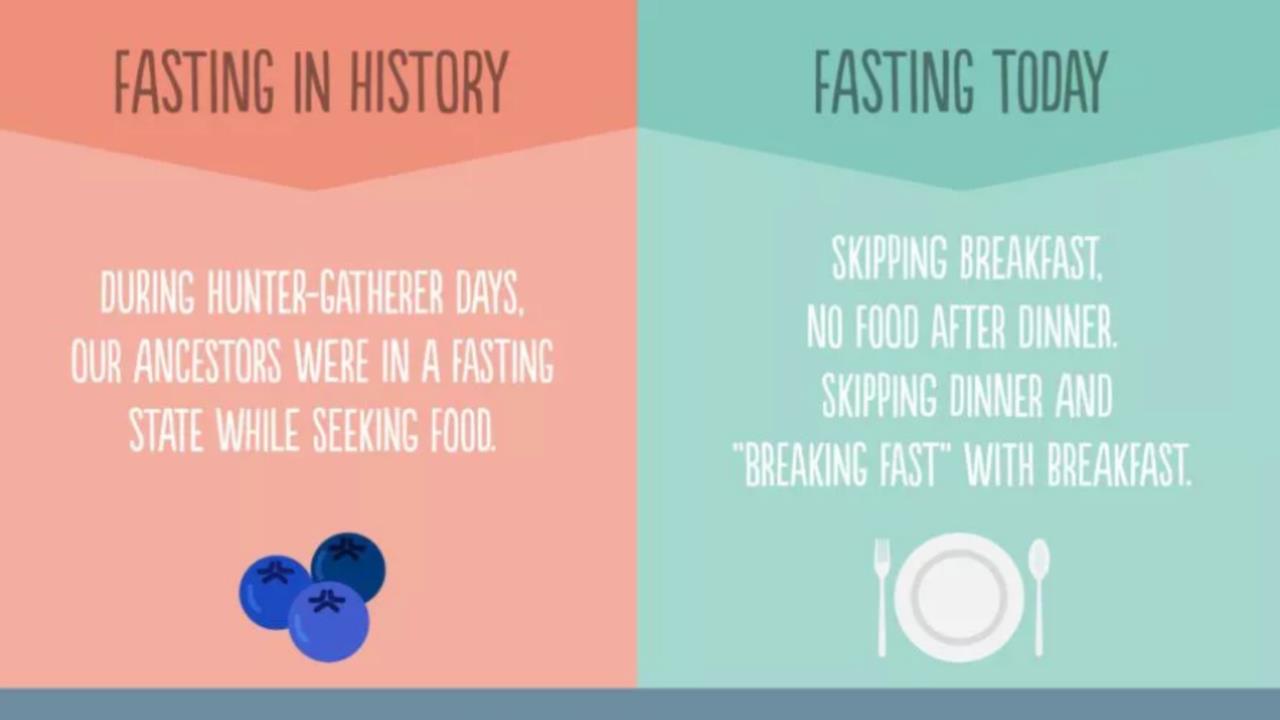 |
Is Skipping Breakfast Right For You?Skipping breakfast has a number of benefits, including the ability to lose weight, improve training performance, and increase growth hormone levels... |
 |
The Benefits of the AIP DietThe AIP diet has a number of health benefits. Besides reducing inflammation and weight, this diet also provides essential nutrients. These include.. |
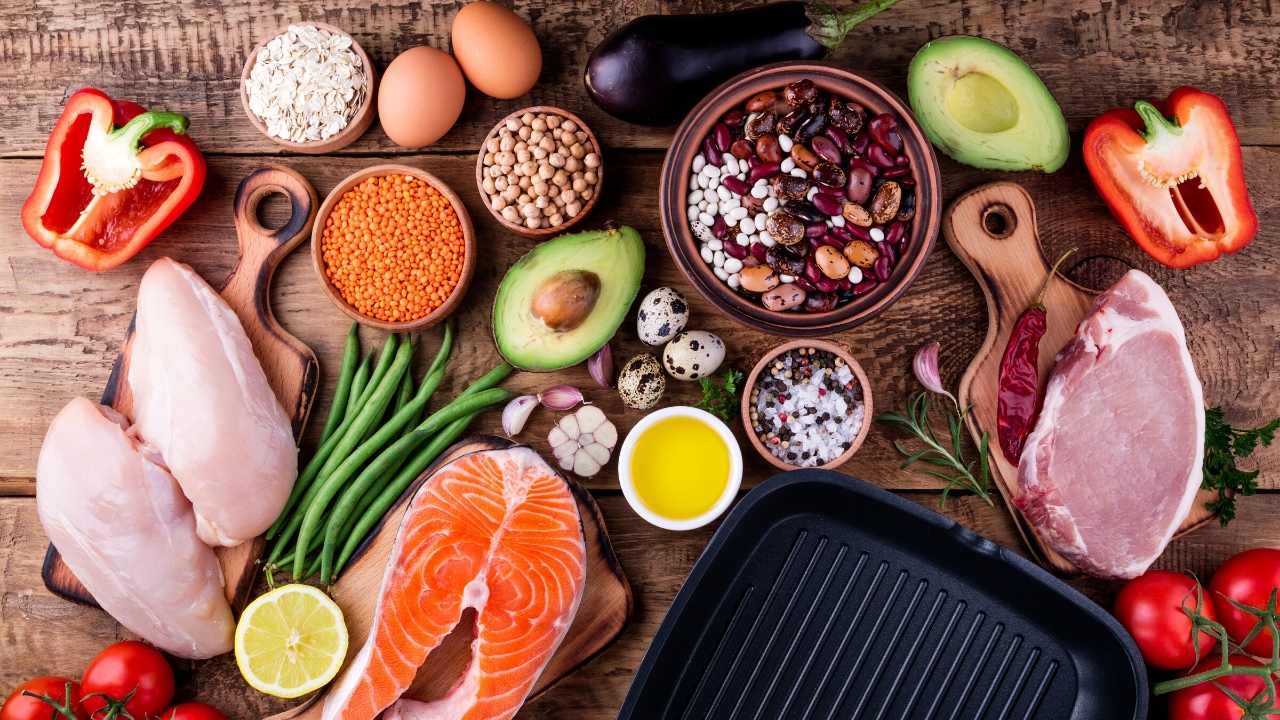 |
Is Eating Only One Meal A Day a Good Idea?Eating only one meal a day is not a good idea, and it is not sustainable for most people. It may help some people lose weight, but for the average.. |
 |
What Are the Side Effects of Water Fasting?Water fasting is a form of fasting, where a person consumes only water during a period of time. It may be undertaken for medical reasons or for.. |
 |
Intermittent Fasting and Blood PressureResearchers have discovered that intermittent fasting may have positive effects on blood pressure. Blood pressure affects the risk of heart disease,.. |
 |
Intermittent Fasting For Weight LossAll you need to know about Intermittent fasting and weight loss |
 |
Is it Okay to Drink Coffee on Intermittent Fasting?You might have heard that it's okay to drink black coffee on intermittent fasting. But did you know you can also enjoy a cold brew? What about.. |
 |
How to Start Fasting 48 HoursIf you are considering fasting 48 hours, here are some of the benefits. There are also a few precautions you should keep in mind before you begin. In |
 |
A Psoriasis Diet Can Help Reduce the Severity of Your PsoriasisA psoriasis diet should consist of eating foods that are rich in vitamin A and C, as well as avoiding sugars and processed foods. Avoid eating red.. |
 |
The DASH Diet to Prevent HypertensionThe DASH diet is an eating plan that was developed by the National Heart, Lung, and Blood Institute. It focuses on fruits and vegetables, low-fat.. |
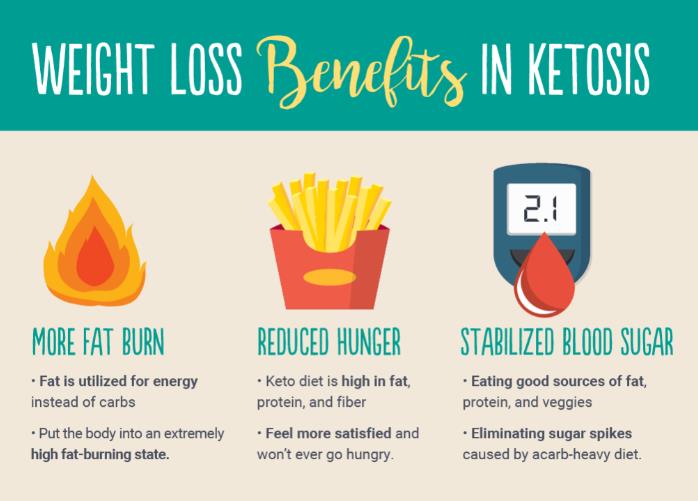 |
LIFE Fasting Tracker - LIFE Apps | LIVE and LEARNThe best, and free, intermittent fasting tracking app for iPhone and Android. Easy to use. Supports all fasting types. Fast with friends. Download for Free. |
 |
Intermittent Fasting AppsIf you're on an intermittent fasting regimen, it's important to keep track of your food and exercise intake. Several apps can help you stay on track.. |
 |
Time Restricted EatingIf you're interested in losing weight or improving your health, you may want to try Time-restricted eating or intermittent fasting. Read on to learn.. |
 |
Reactive HypoglycemiaThere are several different ways to treat reactive hypoglycemia. The first step is to reduce or eliminate your caffeine and alcohol intake. You may.. |
 |
Low-Carb Meal PlansLow-carbohydrate meal plans are based on limiting the amount of carbohydrates you eat. Instead, you replace foods that are high in carbohydrates with |
 |
Intermittent Fasting: What is it, and how does it work?Intermittent fasting involves switching between fasting and eating on a regular schedule. This type of fasting could manage your weight or even some forms of |
 |
How Autophagy WorksAutophagy is a dynamic degradation system that promotes tumor survival. It also promotes the growth of established tumors and facilitates metastasis. |
 |
The 12-Hour Fast - What Are the Benefits of a 12-Hour Fast?The 12-hour fast is a popular dietary approach that can help you lose weight. It forces your body to rely on its stored fats for energy. It has also.. |
 |
Fasting Before Working OutFasting before a workout has its advantages. Not only does it provide more energy during a workout, it can also help with digestion, which can take.. |
 |
Healthy Ways to Lose WeightLosing weight is a great way to improve your health and reduce your risk of certain conditions. It can also reduce your total cholesterol levels and.. |
 |
Intermittent Fasting 101 — The Ultimate Beginner's GuideThis is a detailed guide to intermittent fasting (IF). Studies show that it can help you lose weight, improve health and perhaps even live longer. |
 |
Top Intermittent Fasting AdvantagesThere are many advantages to intermittent fasting as a strategy for weight loss. Intermittent fasting can work with any diet... |
 |
Weight Loss (Low Carbohydrate Diets)Low carb diets have often been used throughout history for weight loss. Although sometimes called a fad, low carb diets have actually more science... |
 |
The Key Factors of Weight LossWeight gain and obesity, like any medical disease, is multifactorial. This means that there are many factors that cause weight gain... |
 |
How Doctors Lose WeightHow do doctors lose weight? For their patients, doctors often advise following standard diets, but when trying to lose weight themselves... |
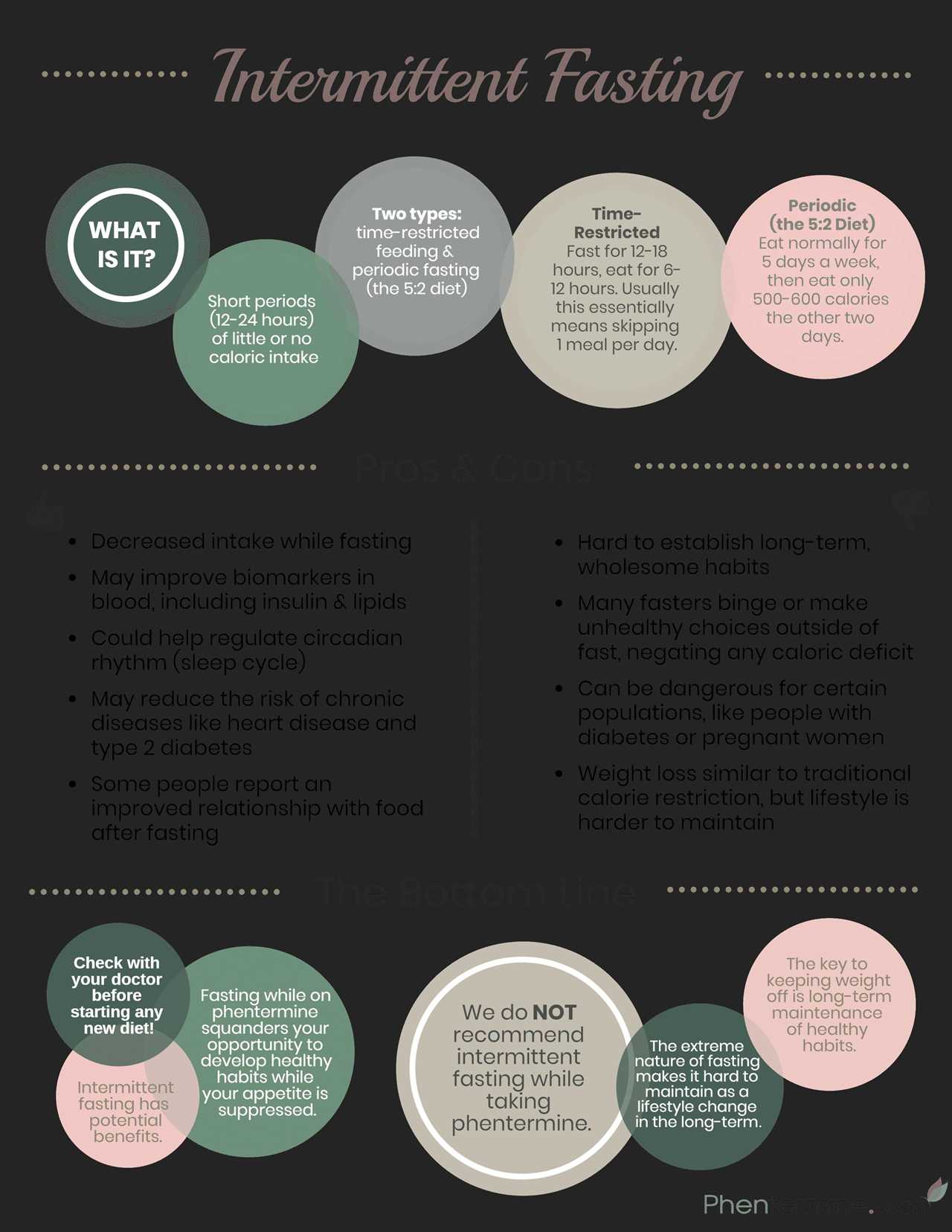 |
Is intermittent fasting good for you?Intermittent fasting isn't new, but it's gaining followers. What's the appeal? |
 |
Vacation Weight Loss PlanWhat is the best vacation weight loss plan? Most people [...] |
 |
Should I (lean-) Bulk or Cut?Should I (lean-) Bulk or Cut? |
 |
100lbs down!100lbs down! |
 |
Calculating the Maintenance calories on workout and rest daysCalculating the Maintenance calories on workout and rest days |
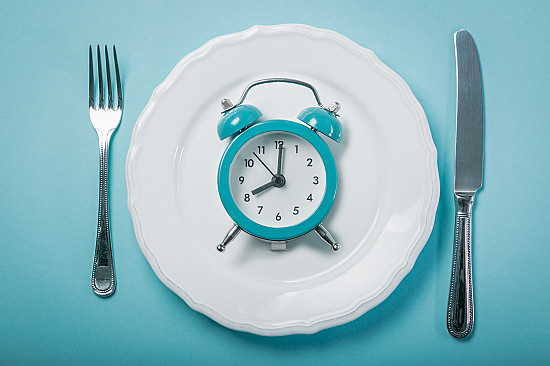 |
Intermittent fasting: The positive news continues - Harvard HealthHarvard research about Intermittent fasting ... |
 |
Rat Model: Intermittent Fasting Normalizes High Blood Pressure Induced by Harmful Intestinal BacteriaPrevious studies have shown that a harmful combination of gut bacteria can cause high blood pressure (hypertension) in humans and other animals. Having a |
 |
Your D-I-E-T Meditation PlaylistIn my TEDx talk, I suggest recasting the noxious word “diet” into D-I-E-T — a reminder to ask ourselves “Did I Enrich Today?” One of the ways we can enrich…The |
 |
Holiday Health (Damage Control)With the holidays on us, maybe your intermittent fasting schedule isn’t as rigorous as it once was. That’s not necessarily a bad thing, because social |
 |
You Got a Zero.Zero’s not been my hero. Through grade school and college, zeroes used to be something of a monster in my mind. Teachers illustrated just how bad a zero is |
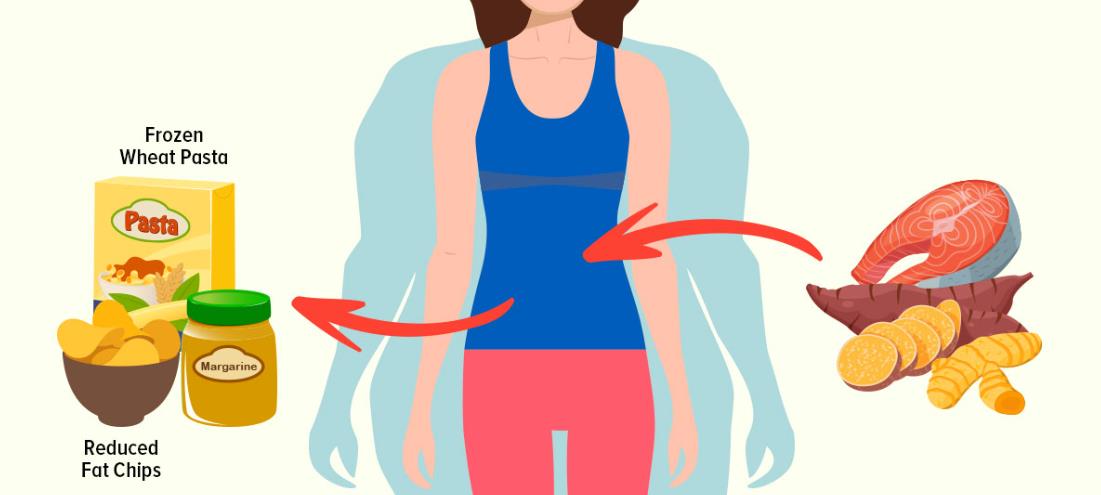 |
Six ways to do intermittent fasting: The best methodsIntermittent fasting is an increasingly popular diet option for weight loss. There are several programs, but this guide can help you find out which one is |
 |
Intermittent Fasting ExperiencesI took part in an energetic discussion of intermittent fasting experiences as part of the release of Women Action Takers Who Gained By Losing for which I wrote |
 |
How to Break a Fast: What to Eat After FastingHow to Break a Fast: What to Eat After Fasting Written by Stephen Anton PhD on May 15th, 2022 How to break a fast? This is an excellent question and one |
 |
How to Believe in Yourself: 10 Tips for Becoming Your Best SelfHow to Believe in Yourself: 10 Tips for Becoming Your Best Self Guest Post by William Anton PhD on June 12th, 2022 William D. Anton, Ph.D is a renowned |
 |
36-Hour Fast (Monk Fast): Everything You Need to Know36-Hour Fast (Monk Fast): Everything You Need to Know Written by Stephen Anton PhD on July 5th, 2022 The 36-hour fast is a challenging fast in that it |
 |
Diet A to Z: Intermittent FastingThe two-day-a-week diet: How intermittent fasting can help you lose weight and boost your health. |
 |
18/6 Intermittent Fasting: Is It the Right Plan for You?18/6 Intermittent Fasting: Is It the Right Plan for You? Written by Stephen Anton PhD on November 29th, 2022 Intermittent fasting has become one of the |
 |
20/4 Intermittent Fasting: The Pros and Cons of a Longer Fast20/4 Intermittent Fasting: The Pros and Cons of a Longer Fast Written by Stephen Anton PhD on January 25th, 2023 There are so many different approaches to |
 |
Everything you need to know about the OMAD dietThe one meal a day (OMAD) diet is a type of time-restricted eating intermittent fasting protocol that involves—you guessed it—eating just one meal a day and |
 |
The ultimate guide to intermittent fasting 20/4When we’re trying to lose weight, we usually think about what we can and can’t eat. Bye-bye beer and burgers. Helloooo carrots and kale! But with intermittent |
 |
The Flexitarian Diet — A Beginner’s Guide by SimpleFrom workouts to working hours, most of us enjoy a little flexibility. So it’s no wonder that when it comes to what we eat, a little wiggle room goes a long |
 |
The Mediterranean diet for weight lossPeople have loved the Mediterranean diet for many years. It’s not a “weight loss diet,” per se. It’s just how people in places close to the Mediterranean Sea |
 |
The complete guide to 18/6 intermittent fastingIntermittent fasting (IF) regularly shows up as many health-seekers’ go-to eating plan, and for good reason. Research suggests that it could have a profound |
 |
The Impact of Different Drinks during Intermittent Fasting: Benefits, Downsides, and ResearchA common dietary strategy called intermittent fasting (IF) alternates between periods of fasting and eating. Apart for water, black coffee, and tea, people |
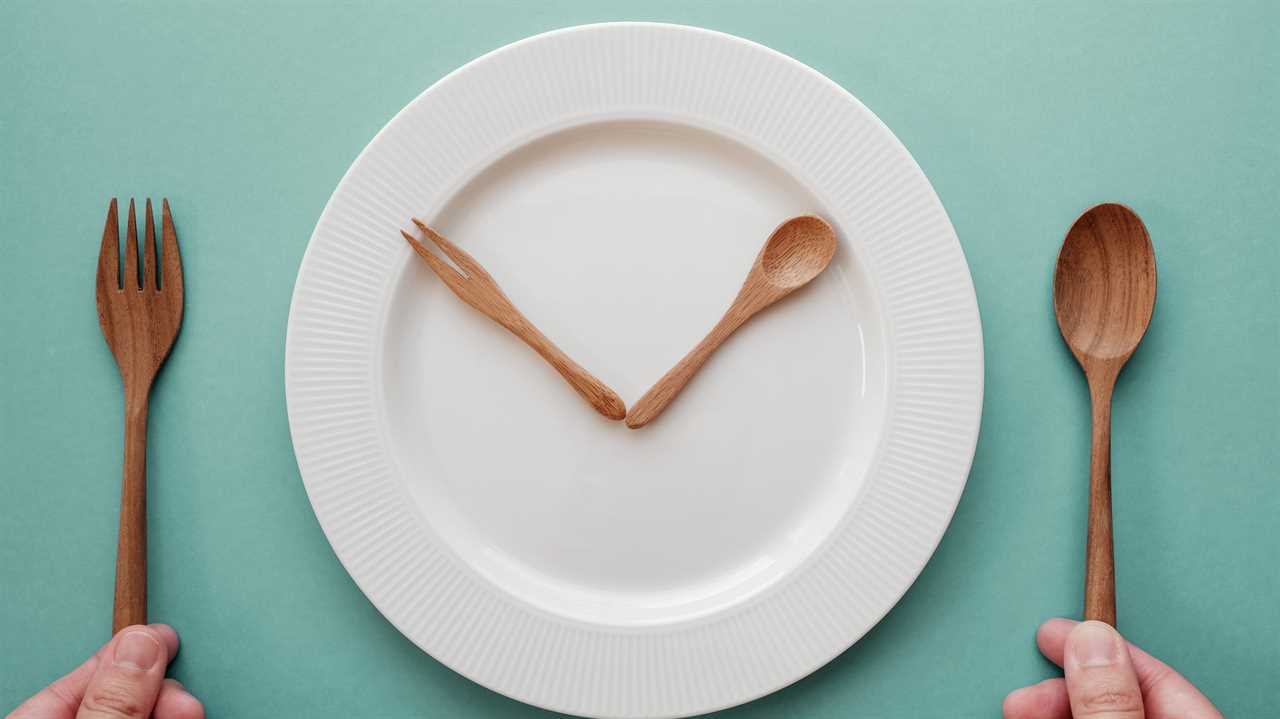 |
Intermittent fasting (IF): Your complete guide - Diet DoctorIntermittent fasting is popular, effective, and easy. This guide tells you how to get started with a successful intermittent fasting routine. |
 |
Intermittent Fasting and Muscle Gain: Benefits, Downsides, and ResearchA common dietary strategy for people who want to increase their muscle mass while also aiding fat loss is intermittent fasting (IF). Although IF has mostly |
 |
Burning Belly Fat: Intermittent Keto vs Intermittent Fasting – Which is More Effective?Visceral fat, commonly referred to as belly fat, is the fat that builds up around the midsection and is associated with a number of health issues, such as |
 |
When you’re ill, is intermittent fasting safe? Precautions and considerations.Those who want to reduce weight, get healthier, or even live longer are increasingly following the trend of intermittent fasting. Yet if you’re sick, you might |
 |
When Intermittent Fasting Stops Working: Reasons, Solutions, and EffectivenessRecently, intermittent fasting has become more well-liked as a technique to reduce weight, enhance general health and longevity, and even improve mental |
 |
5 Intermittent Fasting Methods, ReviewedIntermittent fasting comes in many shapes and forms. This article reviews its pros and cons so you can decide if it's worth a try. |

